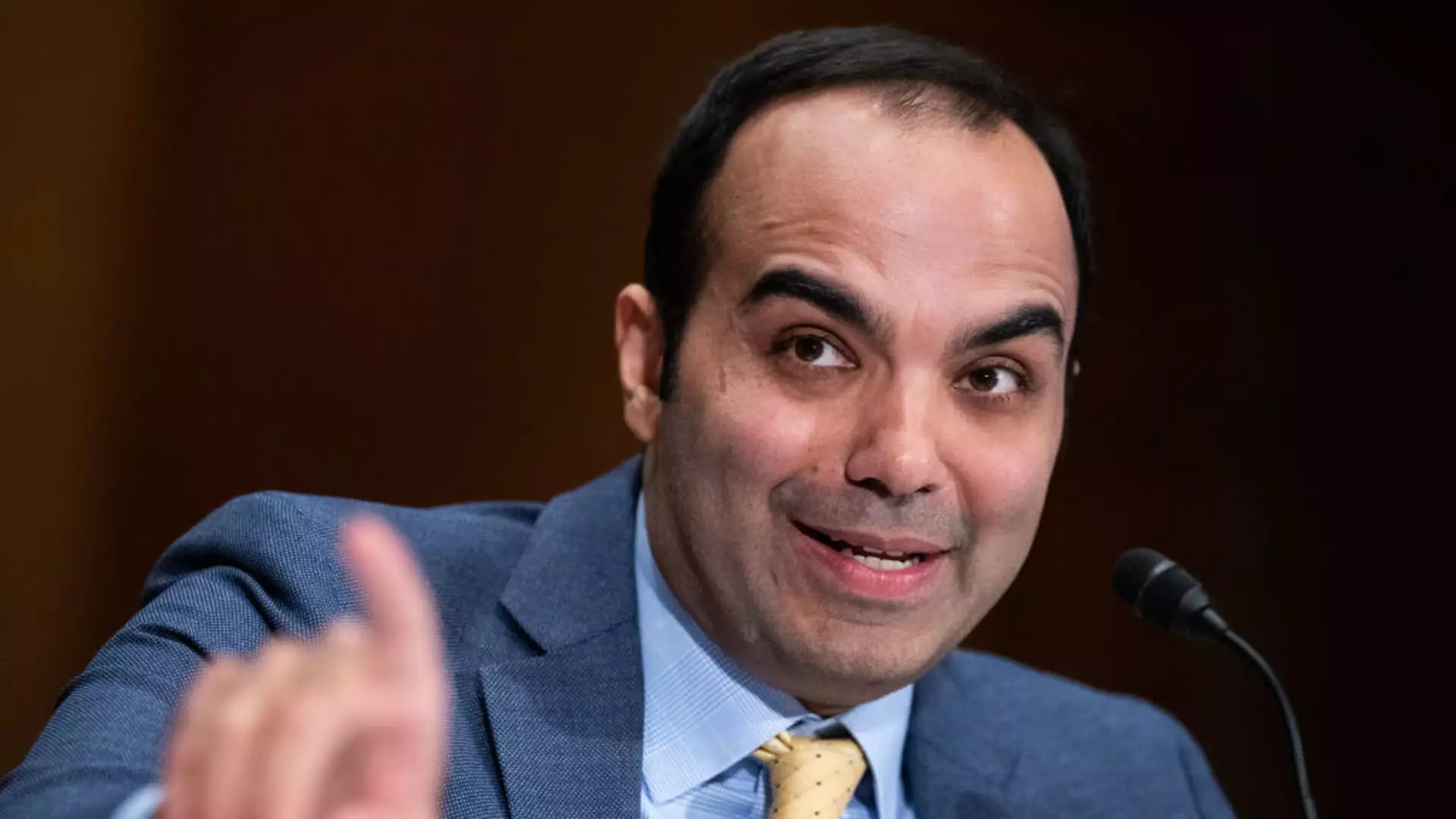In recent years, the landscape of financial services has dramatically transformed with the rise of nonbank firms, including tech giants and fintech companies that provide products like payment processing and digital wallets. As consumer behavior shifts towards mobile and online transactions, the need for oversight in this sector has become increasingly pressing. The Consumer Financial Protection Bureau (CFPB) recognizes this evolution and is responding with new regulatory measures aimed at ensuring that these nonbank entities comply with the same standards as traditional financial institutions, such as banks and credit unions.
On a pivotal Thursday, the CFPB announced a finalized rule that ushers in a new era of supervision for nonbank financial service providers. Under this regulation, firms that handle an annual volume of 50 million transactions or more will be subject to agency scrutiny. This represents a significant broadening of the CFPB’s oversight authority, traditionally limited to banks, bringing app-based transaction entities like Apple Pay, Google Pay, Amazon Pay, and fintech leaders like PayPal, Square (Block), Venmo, and Zelle into its regulatory fold.
This initiative is predicated on a necessity to safeguard consumer interests, as the CFPB aims to enforce legal compliance among these tech firms. As noted by CFPB Director Rohit Chopra, “Digital payments have gone from novelty to necessity,” which underscores the regulator’s commitment to evolve its oversight practices to align with current market trends.
The expanded authority allows the CFPB to conduct proactive examinations of these nonbank firms, including the capability to demand operational records and interview relevant personnel. Such vigilance is crucial in protecting consumers from potential abuse, enhancing their privacy, combating fraud, and preventing unjust closures of accounts. Given that payment apps are increasingly functioning as essential banking tools, it becomes imperative for the CFPB to ensure that users are adequately protected as they engage in over a trillion dollars’ worth of transactions annually.
The rule also responds directly to the changing dynamics of consumer interaction with their finances. As individuals increasingly depend on payment apps, particularly among low- and middle-income users, these platforms become integral not just for transactions but as virtual banking alternatives. The regulator’s acknowledgment of this shift serves to reinforce the necessity of sound regulatory measures for these financial products.
Initially, the CFPB proposed a threshold that would require nonbank firms processing a minimum of 5 million transactions to be under the same regulatory scrutiny as banks. However, this figure was ultimately adjusted to 50 million, significantly narrowing the scope to just seven entities that now face increased oversight. While this may limit the immediate regulatory burden on a larger number of firms, it raises questions about whether the singled-out entities can effectively manage compliance without experiencing unnecessary disruptions.
Furthermore, the decision to exclude payment apps that serve specific retailers, like Starbucks, reflects a targeted approach to regulation that aims to focus on the most impactful players within the digital payments market, thereby allowing smaller platforms to operate without overwhelming regulatory imposition.
Interestingly, the move has garnered support from segments of the traditional banking industry, which has long expressed concerns about the growing influence of tech firms in financial services. Lindsey Johnson from the Consumer Bankers Association highlighted that this regulation marks a crucial step for fair oversight, ensuring that nonbank entities engage responsibly with consumers. The endorsement from the banking sector signifies a mutual recognition of the need for regulatory balance in evolving financial ecosystems.
With future governance at the CFPB uncertain and potential changes on the horizon, the question remains as to how these regulations might adapt under different political landscapes. The agency’s proactive measures indicate a willingness to establish a baseline of accountability in the financial services sector that could define the trajectory of consumer finance for years to come.
The CFPB’s new oversight rule represents a necessary advancement in the regulation of nonbank financial service providers. As technology continues to change how consumers interact with their finances, such regulatory measures are vital to ensure consumers’ rights and interests are adequately protected. Ultimately, the effectiveness of this oversight will determine whether the evolution of financial services remains beneficial for all stakeholders involved. As the industry navigates this transformation, maintaining a focus on consumer welfare will be crucial in fostering trust and integrity in an increasingly digital financial landscape.


Leave a Reply